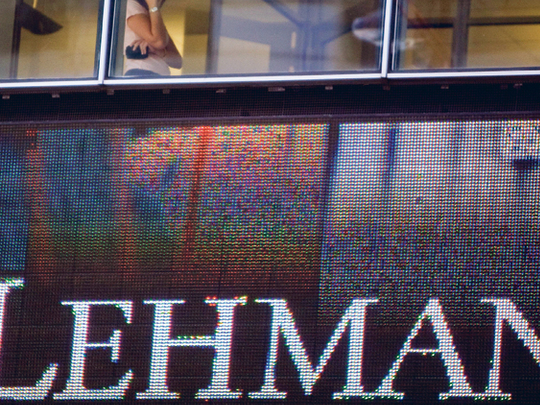
Ernst & Young, the Big Four auditor that failed to keep Lehman Brothers from misleading investors about its financial condition, still can't get its facts straight.
Last week, after Lehman's bankruptcy examiner accused E&Y of malpractice in a report on the investment bank's collapse, the accounting firm issued a brief statement standing by its audit work and offering up its best defence.
"After an exhaustive investigation, the examiner made no findings in his report that Lehman's assets or liabilities were improperly valued or accounted for incorrectly in Lehman's November 30, 2007, financial statements," E&Y said, referring to the last fiscal year for which it performed a full-fledged audit of Lehman's books.
Part of that statement is a half-truth. The other part stretches the truth past the breaking point.
It's true the examiner, Anton Valukas, didn't find that Lehman's assets or liabilities were improperly valued at the end of 2007. One thing E&Y left out: Valukas did find evidence that Lehman used unreasonable asset values for the first and second quarters of 2008, including one investment he said was overvalued by as much as $500 million (Dh1.8 billion).
As for the other part of E&Y's statement, Valukas' report did show instances where Lehman's accounting was incorrect. Specifically, Valukas concluded that the footnotes to Lehman's 2008 quarterly financial statements contained "false and misleading" statements about certain repurchase agreements known within Lehman as Repo 105 deals. The footnotes to Lehman's year-end 2007 financials "contained essentially the same statements," he said.
Those are accounting errors — even if Valukas didn't use those precise words — and not just a disclosure problem, because the footnotes are an integral part of the financial statements.
Lehman used Repo 105 deals to move $38.6 billion of securities off its year-end 2007 balance sheet, typically for about a week, and temporarily reduce its debt. It got the assets off its books by treating the transactions as sales rather than financings for accounting purposes. This let Lehman show lower leverage ratios.
In concluding E&Y could be found liable for malpractice over its 2007 audit, Valukas said.
Worst offence
Lehman's Repo 105 deals were even larger during the first and second quarters of 2008, and the company used the same false and misleading footnote statements. Valukas said this also could be grounds for a malpractice claim against E&Y.
E&Y's worst offence may be that the firm knew about the Repo 105 deals before Lehman imploded and failed to tell the directors on Lehman's audit committee. A Lehman executive, Matthew Lee, alerted E&Y auditors in June 2008. But they did little in response, said Valukas, who identified this, too, as grounds for a malpractice claim.












